|
Launching your own horse coaching practice is not for the faint of heart. The early days of your endeavor are full of excitement. Your journey gains traction through press releases and friend's referrals. You feel like this is going somewhere, it feels doable, yay!
Yet, after a while, something strange happens. The initial excitement fades as you enter the brutal doldrums of the 'inbetween'. In the doldrums you are neither a fledgling practice, nor quite successful yet either. Ugh. This is a peculiar place to be. The slow place can make you doubt yourself and your product. You wonder if you were wrong to believe your great ideas were worth building a business around. Are people truly needing your service or was it all an illusion. Will it ever get better? Starting your own business, no matter what field you are in, is one of the hardest things you'll ever do. In 2019, the failure rate of startups was around 90%. 21.5% of startups fail in the first year, 30% in the second year, 50% in the fifth year, and 70% in their 10th year. More than 95 percent of startups fall short of their initial projections. Jaiks, getting heart palpitations and clammy palms yet? Relax. Remember, you DO have what it takes, but what matters is where you fix your gaze. 17 Signs of brutal growing pains. The following experiences are completely normal when failing forward in the doldrum phase of launching a business. They are NOT signs you are failing. They are growing pains as you transition from ugly duckling practice to powerful swan practitioner. They are also signs that you need some healthy space between you and your practice, so that you can sustain yourself through this awkward adolescence phase of business building.
All these thoughts and feelings and sensations are a normal part of early practice launching. Building a practice is rarely smooth sailing all the way through. There are very few businesses that became an instant overnight success. Most have been percolating for years, with business owners amassing skill, knowledge and experience well before the idea to launch a business was ever born. Remember that as you stumble, trip and fall your way forward through the doldrums. *****WARNING Sometimes motivated entrepreneurs take their skills too far. The more driven you are, the more likely you have what it takes to build a practice from scratch. However, the more driven you are, the more like you also suffer from anxiety around failure, so the more you have to lose mentally. Give yourself time. If you came to the conclusion that having your own practice is a good idea, then you have a spirit with a proclivity for obsessively hard work. Make sure you understand how to stay physically and mentally balanced and healthy while you embark on this path. Here are 5 tips to protect your sanity while launching your own practice. 1. Do not wrap up your identity in your practice. You do not want to teach your mind that if your practice fails, this means you personally are a complete wreck of failure. Keep a healthy separation. Repeat after me: Your practice is what you DO; it does not define who you ARE. 2. YOU and your family have priority; not your practice. If you experience obsession over success or failure of your practice that prevents you from enjoying time with your loved ones, it is time to reevaluate priorities in your life and make healthier choices. 3. Have an exit plan. Know what you will do to take care of your needs (and those of your family) should the practice go under. Don't gamble, don't stick your head in the sand. Make educated decisions, be prepared, and be realistic. 4. Be conservative with your expenses. Investing in your company is fine. Using savings to carry your practice through temporary setbacks is also fine and sometimes needed. However, invest based on your practice's needs, and not on your wants. I used to work for a start up company that was under water financially, yet the CEO bought a brand new wide screen TV to help the team stay on top of the workload. Nobody ever looked at that TV, and a few years later the company was kaput. Keep it simple. Luxuries are often just a trick to make you feel more successful than you are or to attempt to impress other people with your financial success. 5. Be realistic and don't bullshit yourself. Are you able to pull this off, or is working for someone else's practice a better fit for you? Is this practice ultimately worth the brutal sacrifice you are making? Is it in alignment with your purpose and life view? Why are you doing it? Are you trying to make your parents proud, impress your boyfriend, prove your husband wrong? Make sure your motivation is pure, authentic and worth wile, or toss the entire practice in the trash in favor for an endeavor that truly fits you well. KEEP GOING. YOU ARE DOING GREAT. But if you love what you are doing, and your intuition says you are on the right track, keep your eye on that Northern Star, and do not give up just yet. Be realistic, but if it feels right, keep on going, keep on trucking, keep on failing forward. When encountering set backs, take a deep breath and try again in the morning. Soon you may move from the doldrums into the space where fair winds blow your practice toward clients who need you and your amazing practice. For some of you the payoff is completely worth the brutal winds of erratic change. For some of you it isn't. Know yourself and if it feels truly right; KEEP GOING. YOU ARE DOING GREAT. EquineFailures Here are some of EquineFlow's failures, ahum, evolutions in the 12 years from 2009 to 2021. Can you see the multiple identity crises EquineFlow went through? Click on each image to read the description of what the heck I was trying to accomplish. I still have a headache from that, ugh. However, for the past 3 years or so, EquineFlow has entered a space of fair winds, in which the scope has narrowed further as the fog lifted for where the core of EquineFlow must lie. Will it stop evolving? I highly doubt it. Change is the nature of the game and I enjoy how EquineFlow grows where humanity flows. So moral of the story; breathe, smile and enjoy the wild ride. Know your limits; don't give up too soon and certainly not too late. And if you need help, shoot me a line at [email protected]. Bon voyage!
8 Comments
Equine assisted modalities are a critical part of any mental growth and wellness initiative. Learn how they are different and when to use them. In 2004 I was part of a snooty Dutch consultancy team sent to a horse farm for equine assisted learning. The goal was to grow team building and leadership skills. At the farm we discovered unproductive habits and got in touch with feelings. We removed roadblocks standing in the way of performance, and healed old wounds. Some people even cried, which is unheard of in corporate training. The outcomes were like psychotherapy. Yet the training was equine assisted learning, not psychotherapy. After all, consultants would be hesitant to go to work mandated group psychotherapy. So what gives?
What is Equine Assisted Psychotherapy(EAP)? Have you ever been near a horse feeling as though all the worries of the world fell away? When entering the space around a horse, many humans encounter a rare sensation of wonder and calm. When humans are hurting, they find that they can think clearer when near a horse. EAP draws upon horses to calm minds. The practice allows people to interact with the horses through experiential play. The outcome reduces symptoms of PTSD, eating disorders, anxiety, depression and more. You meet your therapist and their horses once a week for private sessions or in group form. What is Equine Assisted Coaching (EAC)? When life gets tough, you deserve support. A car needs maintenance so that the axle doesn't break. A human nervoussystem needs attention so that the mind doesn't break. Equine Assisted Coaching is maintenance for your mind. You deserve a thriving, enjoyable life, and interacting with horses helps you get that. You meet your coach and their horses once a week for individual sessions. What is Equine Assisted Learning? (EAL) Near horses, it is easy to think and grow. EAL is a collection of horse assisted skill building practices ranging from teambuilding, leadership development, mindfulness, to tutoring and yoga. You meet your trainer and their horses once a week in a group format, or come to their farm for a week long retreat. So what is the difference? EAP, EAC and EAL seek to increase human mental wellness through similar techniques. They all work outdoors with unbridled horses. They all use experiential play and ask participants to reflect on the experience. The difference between EAP, EAC and EAL lies primarily in the scope of the facilitator. - An Equine Assisted Psychotherapist is a licensed mental health provider. They must carry licensing to diagnose and treat severe mental health challenges. - An Equine Assisted Coach is not a licensed mental health provider. Their scope excludes people with severe mental health challenges, unless a coach seeks more licensing, or their client is also under treatment by a licensed mental health provider. Assisted Coaching is not yet a licensed field. - Equine Assisted Learning differs from EAC and EAL because it focuses primarily on life skill building. It is neither psychotherapy nor coaching. It also differs from traditional riding instruction because it seeks to develop skills that do not necessarily relate to riding and horsemanship. How to know which style you should choose? If you are currently dealing with severe mental challenges that prevent you from working, studying or going through every day life, you are best served by Equine Assisted Psychotherapy. Are you currently doing ok, but feel like there should be more to life? Do you want to understand your own emotional genius better? Do you want to find better relationships and more fulfillment in life? Then you will feel right at home with an Equine Assisted Coach. Does your organization need to optimize teamwork and leadership? Does your group need to improve communication skills? Does your people deserve a fun day away from the office to play with unbridled horses? Give your people the gift of Equine Assisted Learning. If you are running low on mental energy or agency, it is smart to focus on mental well being. This can help you build resilience that may save you when life brings set backs in the future. Searching and finding the right practitioner or facility isn't difficult. For Equine Assisted Psychotherapist, visit www.eagala.com. For Equine Assisted Coaches and Equine Assisted Learning, visit www.equineflow.com. By doing this, you can find skilled partners to enjoy the benefits of horses, and grow a strong, resilient and confident mind. Want to become an Equine Assisted Coach? Visit https://www.equineflow.com/horsecoach.html 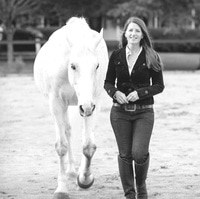 Whether you are an entrepreneur, executive, or a mom, your leadership is essential to ignite positive change in your tribe. For some women, leading is a second nature. For others it can be challenging, frustrating and, when things don't flow, downright irritating. Sounds familiar? Read on to learn how interacting with horses helps you grow your leadership skills.  *** This article was published in the December 2018 edition of Natural Awakenings** The book of 2018 is closing, reminding people to pause, reflect and let go. The new year is bringing a blank book, and the pen is in our hands. It is our chance to write a beautiful story for ourselves, but what if the holiday season brings about too much stress to sit down and write? Here are three tactics for managing emotional wellbeing during even the most stressful midwinter days. *** This article was published in the August 2018 edition of Natural Awakenings**
We live in a culture driven by hunger for success. When talking about success, we typically talk about making billions of dollars, authoring multiple bestsellers, or rising to fame. But if we ask people who actually do those things, about the definition of ‘success’, their interpretation of the word has little to do with the very achievements that made them famous. Instead their sentiments surprisingly mimic those of one of man’s oldest allies; the horse. *** This article was published in the April 2018 edition of Natural Awakenings**
We’ve all craved nature at some point. Maybe shopping at Woodruff Road made us long for a hike at Caesars Head. Perhaps trying to find parking downtown left us dreaming of serene waterfalls. Hundreds of studies found proof of what our intuition already knows: spending time in nature reduces stress. Sometimes a quick walk suffices to unwind us, but if not, we could just turn to horses. 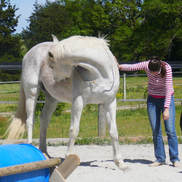 Resistance, disinclination, hesitancy, reluctance. Four words describing a tingling sensation associated with feeling you are not ready to move forward with something, even if you think you should. It doesn’t feel like a downright ‘NO!’, but more like a hunch, a disinclination to do something, a lack of enthusiasm. And the frustating thing? Is not always clear why you feel that way. Sounds familiar? Read on. Getting Unstuck. It sounds so easy. But it's a lot harder than it seems. Harder than it should be. Here are seven easy, thought provoking questions to jump-start your quest for a more fulfilling life.
|
- EAC CERTIFICATION
- Services
-
About
- Testimonials
- FAQ
-
Find a Certified EquineFlow Practitioner
>
- Kim Carter CEP 2
- Maria Mersman CEP 2
- Donna Thomas CEP 2
- Shermane Abbott CEP 2
- Karen Hartney CEP1
- Roz Tyburski CEP 2
- Terry Farmer CEP 2
- Maren Reaves CEP 2
- Jennifer Thompson CEP1
- Allison Ragan CEP 1
- Charleen Snyder CEP1
- Cat Leonard CEP1
- Sara Griffith CEP 1
- Tiffany Owen Avirett CEP 1
- SHARON COOK CEP 1
- Robin Richardson CEP 1
- Trish Finley CEP1
- EquineFlow Excellence Awards
HoursM-T: 10am - 3pm
|
|
"We cannot direct the wind, but we can adjust the sails." - Dolly Parton
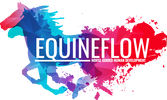









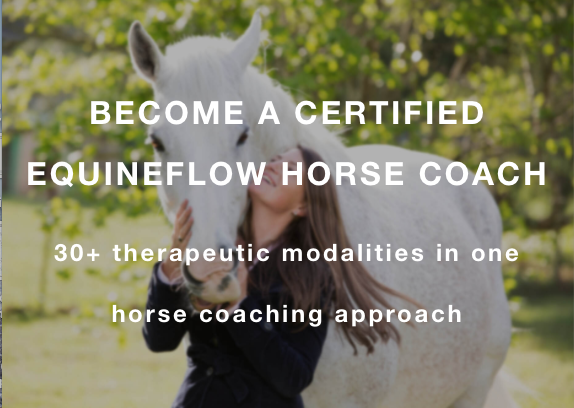
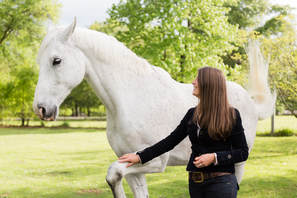


 RSS Feed
RSS Feed